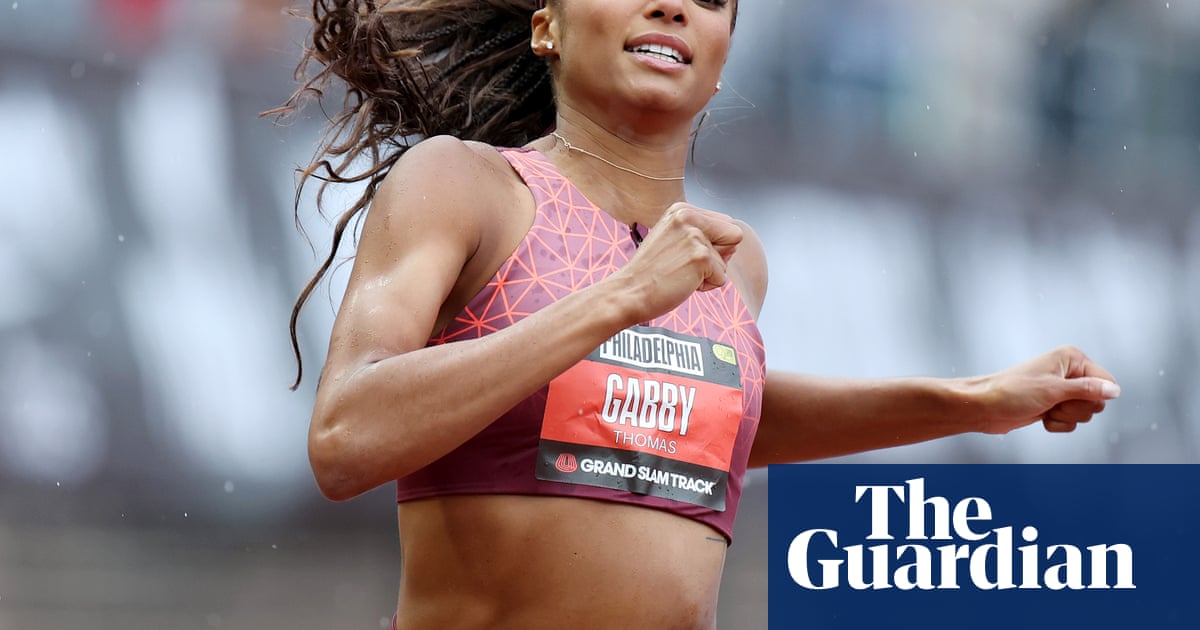The incident involving Olympic champion Gabby Thomas at the Grand Slam Track meet raises significant concerns about harassment, especially in the context of female athletes and the increasing prevalence of sports betting. This incident not only highlights the challenges faced by women in sports but also emphasizes the darker side of fame.
Harassment and Its Implications
Gabby Thomas’s experience reflects a disturbing trend where female athletes are not only celebrated for their achievements but also subjected to verbal abuse and harassment. The behavior of the gambler who heckled Thomas demonstrates a troubling intersection of sports culture and gambling, where individuals feel emboldened to belittle athletes for personal gain. Thomas's public condemnation of this behavior serves to draw attention to the need for accountability and respect within sporting events.
Public Reaction and Support
The response on social media, particularly from figures like Kara Goucher, indicates a broader community backlash against such harassment. This collective outrage can be a catalyst for change, prompting discussions around the treatment of women in sports and the responsibilities of fans and the public. Thomas’s situation resonates with many who advocate for safer and more respectful environments for female athletes.
Broader Context of Sports Betting
The article touches on the growing concern regarding the link between sports betting and harassment. As gambling becomes more integrated into the sports experience, there is potential for an increase in toxic behavior from those placing bets. Female athletes, like Caroline Garcia, have already pointed out the negative impact of "unhealthy betting" on their experiences. This raises questions about the responsibility of betting platforms and the sporting community to create a respectful atmosphere.
Media Representation and Public Perception
Gabby Thomas’s rise to fame, including her appearances on prominent platforms like Vogue and US talk shows, contrasts sharply with her experiences of harassment. This dichotomy illustrates how media representation can often overlook the challenges faced by successful women in sports. The coverage of her harassment may serve as a reminder to the public about the complexities of fame and the vulnerabilities that come with it.
Economic and Political Implications
While the immediate effects of the harassment incident may seem confined to the realm of sports, the implications can extend into broader societal discussions about gender equality and the treatment of women in various fields. Increased awareness and advocacy for women's rights in sports could lead to legislative changes or initiatives aimed at protecting athletes from harassment.
Community Support and Target Audience
This article is likely to resonate with feminist communities, sports advocates, and those concerned about the ethics of gambling. It seeks to engage audiences who are empathetic towards the struggles of female athletes and who advocate for a more respectful and equitable sporting environment.
Impact on Markets
Given the focus on sports betting, this incident could influence public perception of gambling companies and their practices. As discussions about harassment in sports grow, there may be calls for greater regulation of betting platforms, potentially affecting stock prices or public trust in these companies.
Geopolitical Context
While this incident may not have immediate geopolitical ramifications, it contributes to ongoing conversations about gender representation and equity in sports globally. The issues highlighted in the article are relevant to current discussions about women's rights and safety, making it a timely topic.
Use of AI in Reporting
There is no direct indication that AI was used in crafting this article. However, if AI had been employed, it might have influenced the language to elicit emotional responses or frame the narrative in a way that emphasizes the urgency of addressing harassment. The choice of words and the framing of the incident could reflect an intention to provoke a reaction from the audience.
The overall reliability of the article is bolstered by the open acknowledgment of the harassment incident and the responses from prominent figures in the sports community. However, the sensational nature of the reporting and the focus on the gambling aspect may skew perceptions. It highlights the need for a nuanced understanding of the complexities surrounding fame, harassment, and sports culture.
